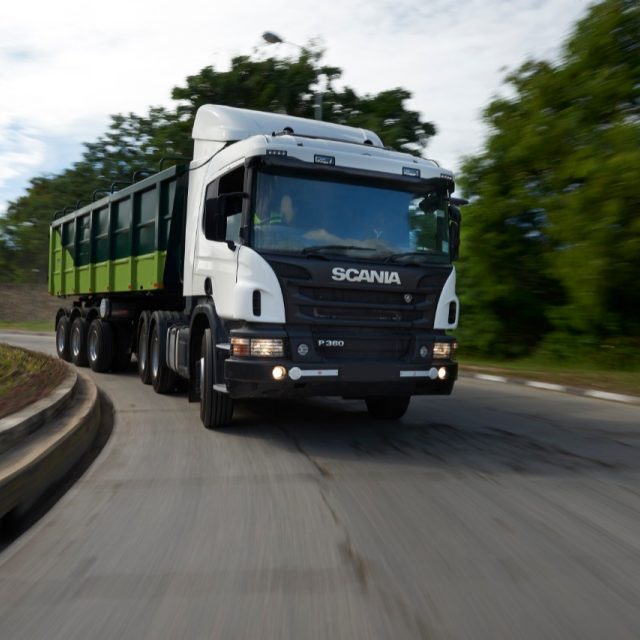How to Buy and Export Delivery Trucks from Kenya
How to Buy and Export Delivery Trucks from Kenya
Shipping a car from one country to another can be tricky, but shipping a large delivery truck is even more challenging. If you’re thinking about purchasing and exporting delivery trucks from Kenya, there are many things you need to know first. This guide will walk you through the process of buying and exporting delivery trucks from Kenya so that your operation runs smoothly from start to finish. Operating a fleet of delivery vehicles is a great way for businesses to save money on gas while also cutting back on their carbon footprint. It’s not always easy to find secondhand delivery trucks, however, which is why many operators choose to buy new ones directly from Kenya. Whether you want to purchase brand new or used delivery trucks, this guide will help you get started in the right direction.
What to Know Before You Buy and Export Delivery Trucks from Kenya
If you’ve made the decision to purchase and export delivery trucks from Kenya, you’ll want to make sure to do your research before you start. Here are a few things to consider before you begin the process:
End of Warranty Check
Although the warranty on your new delivery trucks may sound useful, it’s actually something you’ll want to avoid. The reason for this is that warranties are only valid if the vehicle has been purchased with a clean title, which is not always the case with used delivery trucks. If you’re purchasing used delivery trucks, an “end of warranty” check can tell you whether or not the title has been reported as stolen. If it has, the title will be listed as “branded,” which means that the vehicle can no longer be sold or registered in Kenya. If the title is clean, you can use it to purchase the vehicle, but cannot export it. Working with an authorized dealer can help you avoid these issues and ensure that you get a clean title.
Exporting Documents
Before you can export delivery trucks from Kenya, you need to obtain the necessary export documents. The good news is that the process is straightforward if you’ve purchased new vehicles directly from the dealer. You’ll need to show them the Kenyan Customs Bill of Export, which is the form you’ll use to declare the delivery trucks. You’ll also need to present the original title for the vehicle(s), as well as proof of ownership such as a bill of sale. If you’re purchasing used delivery trucks, you’ll need to present the original title for each vehicle and the Kenyan Customs Bill of Export, which can be obtained from the dealer. You can also use a Bill of Export from Kenya, but this is not as common or reliable.
Finding the Right Shipping Company
When it comes to buying and exporting delivery trucks from Kenya, there are two ways you can go about the process: you can purchase new delivery trucks directly from a seller in Kenya or you can purchase used delivery trucks from a seller in a different country. If you decide to purchase new delivery trucks directly from the seller in Kenya, you’ll want to find a reputable shipping company to transport them to your country of residence. There are a few things you can do to find the right shipping company: – Ask around – Your friends and business associates may know of a good shipping company in Kenya, so be sure to ask around. You can also use online review sites like Yelp to see what others have to say about different companies. – Request quotes – There are many online shipping companies that can help you import new trucks from Kenya. Request quotes from a few different companies to see which one is right for you.
Importing Customs Clearance
If you’re importing delivery trucks from Kenya, you’ll need to clear them with the Customs department in your country. Certain countries, including the U.S. and Canada, have what’s known as a “first-come-first-served” policy when it comes to clearing delivery trucks. This means that you’ll need to get your trucks cleared as quickly as possible once they arrive in your country, or you risk losing your place in line. Other countries, like Australia and the United Kingdom, have a “first-come-first-served-but-only-if-you’re-ready-to-pay” policy. Be sure to check with the Customs department in your country to find out what the clearance process is like, and what you’ll need to do in order to clear your trucks as quickly as possible.
Marine Insurance
If you’re importing delivery trucks from Kenya by sea, you’ll want to make sure you have marine insurance before the shipment arrives. This insurance will cover you in the event that the shipment is damaged or lost during transit. The good news is that many of the same shipping companies that can help you import new trucks can also assist you with marine insurance. Whether you choose to insulate your shipment with the same company that helped you import the delivery trucks or you find a different company to work with, you’ll want to get your insurance as soon as possible to ensure that the shipment is covered.
Final Words
If you’re looking to purchase and export delivery trucks from Kenya, a great place to start is Nairobi. This Kenyan city is a major economic center, making it a great place to find a wide variety of secondhand delivery trucks. When you visit, be sure to bring a translator with you so that you can effectively communicate with your potential sellers. Keep these things in mind as you search for your new delivery trucks so that the process goes smoothly.








LEAVE A COMMENT
You must be logged in to post a comment.